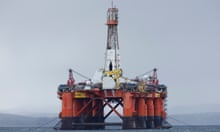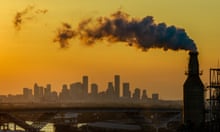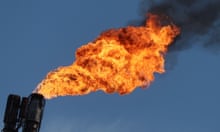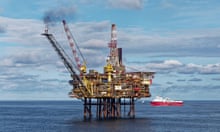Countries and companies planning to expand their fossil fuel production are taking “very unhealthy and unwise economic risks” as their investments may not be profitable, the world’s foremost energy adviser has warned.
Fatih Birol, the executive director of the International Energy Agency (IEA), predicted this week that fossil fuels would peak this decade, a historic turning point for the climate. But despite the likelihood of demand declining, and the threat of climate chaos, many countries and private sector companies are considering new capacity.
Birol said: “New large-scale fossil fuel projects not only carry major climate risks, but also business and financial risks for the companies and their investors.
“When I talk with the oil companies, both international and national oil companies, some of them are saying that we have been underinvesting in oil and gas. But companies and investors should be very careful about this claim, bearing in mind the demand trajectories we are seeing. It could lead them into taking very unhealthy, unwise economic and climate risks.”
Governments should be urgently discussing the phasing-out of fossil fuels at Cop28, the forthcoming UN climate summit, Birol said. The question of phasing out was dropped at last year’s Cop, but many countries plan to reignite the debate this year.
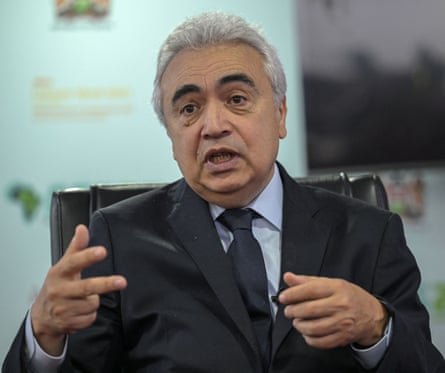
But even with governments’ current climate policies, which are inadequate and need to be toughened, the amount of oil and gas needed globally will decline, Birol noted.
“If you start a project today, wherever you are, the first oil or gas will come to markets in five years, and will come at a time when you will see global oil and gas trends declining,” he told the Guardian in an interview. “Therefore, one should be very careful about not only the climate risk, but also the business risk on large-scale oil and gas projects.”
Birol refused to single out any countries, but several developed and developing economies are planning large expansions of their fossil fuel production, despite their commitments to limiting global temperature rises to 1.5C above pre-industrial levels. The US was this week found to be planning the world’s biggest share of global oil and gas expansion between now and 2050, and the UK government plans scores of new oil and gas licences as the prime minister, Rishi Sunak, vowed to “max out” the North Sea.
Several countries and companies planning expansions have cited findings from the IEA that oil and gas will still be needed in the future, even when the world reaches net zero greenhouse gas emissions, as justification for their plans. Birol warned that they were not taking on board the IEA’s full advice: “We will definitely need oil and gas in years and years to come, but the issue is the amount of oil and gas we will need globally will be less and less.”
He said: “They are misjudging the market trends – they believe what they want to believe. And they also misjudge the mood of the people in the street as far as climate change is concerned, and their responsibility.”
Birol applauded the proposed commitment to triple global renewable energy capacity, likely to be a centrepiece of Cop28, which will take place from late November in Dubai. But he said this commitment was insufficient and that the rapid decline of fossil fuels was also needed to keep the world within 1.5C.
“The increase of renewables is good, but in the absence of a decline in fossil fuels, the impact on temperature trajectories will be minimal or nothing,” he said. “There should be a discussion [of the phase-out of fossil fuels at Cop28]. And I hope that discussion will give a signal to the markets that fossil fuel consumption will fall.”
Warnings that the price of renewable energy could rise were overdone, Birol indicated. “There may be some zigzags [on the price], but the overall trend is they are competitive [with fossil fuels] and will be even more competitive in future,” he said. “Solar is very competitive, and offshore wind is making big steps – soon we will see it competitive as well.”
Although he has forecast that fossil fuel use will peak for the first time this decade, Birol said much more needed to be done by governments to ensure that its use declined far more steeply afterwards. “The most important issue is not the peak, but the decline of fossil fuels after the peak, that is the nerve centre of the problem.”
Current policies will lead to global heating of 2.4C and must be toughened as a matter of urgency, he said.

